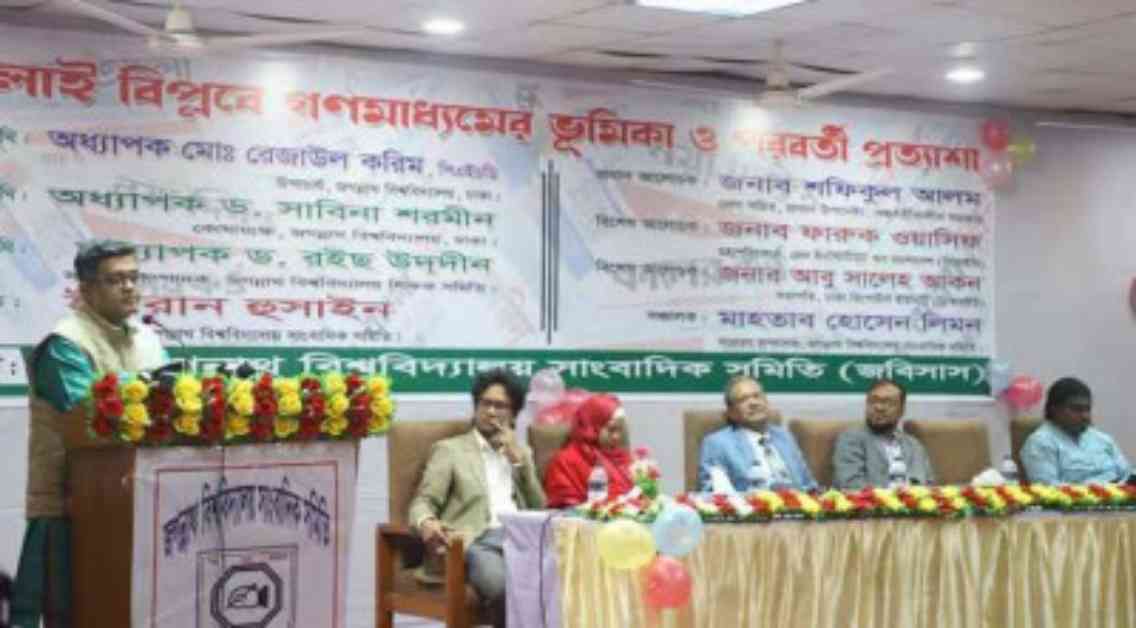Powerful Impact of Fascism: 200,000 People Face Jail Time
In a chilling revelation, the Press Secretary of the main opposition party, Jatiya Oikya Front, warned that if fascist power prevails in the upcoming election, **200,000 people would find themselves behind bars.** The implications of such a scenario would be dire, leading to widespread unrest and the creation of a lawless state across the country.
Taking center stage at a seminar titled **”The Role of Mass Media in the July Revolution and Future Expectations”** organized by the Journalism Committee at Jagannath University on Saturday, January 11, the Chief Critic, Mr. Shafiqul Alam, made this stark statement. He painted a grim picture of a potential future under fascist rule, urging journalists to reflect on the significant historical parallels and lessons learned from the Liberation War of 1971.
Mr. Alam emphasized the pivotal role of journalists, educators, and intellectuals in combating fascism, highlighting the need to dismantle oppressive systems of power and privilege. He underscored the importance of fostering a nationalistic and community-centered vision to counter the rise of authoritarianism and protect democratic values.
Expert Insights on the Current Political Landscape
During the seminar, the former Director-General of the Intelligence Agency, Mr. Faruq Wasef, shed light on the authoritarian tendencies of the ruling Awami League and its leader, Sheikh Hasina. He criticized the government for promoting corruption and nepotism, enabling money launderers to operate with impunity and spread propaganda abroad.
Moreover, renowned academics and university officials present at the event, including Vice-Chancellor Dr. M. Rezaul Karim, highlighted the need for vigilance against autocratic regimes and emphasized the crucial role of educational institutions in fostering critical thinking and civic engagement.
Challenges of Upholding Democratic Values
Reflecting on the political turmoil of 2006-2007, Mr. Alam pointed out the failure of political parties to grasp the urgency of the situation, leading to a state of emergency and political instability. He warned that those who remain passive in times of crisis risk becoming complicit in the erosion of democratic norms and freedoms.
The seminar, chaired by Imran Hussain, President of the Journalism Committee at Jagannath University, featured additional insights from faculty members, including Dr. Mo. Raijul Uddin and Dr. Sabina Sharmin, as well as student representatives and media professionals.
As the nation grapples with uncertainty and political polarization, the discourse at Jagannath University serves as a timely reminder of the collective responsibility to safeguard democratic principles and uphold the rule of law in the face of authoritarian threats.
Unified Action for a Democratic Future
In conclusion, the seminar underscored the need for a united front against fascism, emphasizing the pivotal role of academia, media, and civil society in fostering a culture of accountability and transparency. By fostering a shared vision of inclusivity and social justice, stakeholders can work towards a future where democratic values reign supreme and authoritarianism is relegated to the annals of history.



























